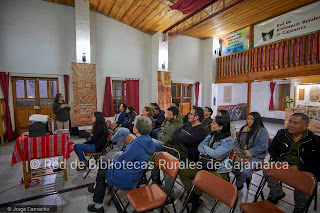When I read "El hombre que curaba", a work by Alfredo Mires Ortiz, it left me with a smile on my lips; since, in the texts that make up the work, there are humorous features that, in every way, make one laugh.
For example, in Pythagoras, he tells what happened to Pythagoras: the mathematical ram, the main attraction of a circus that came to the town of Burundanga, a ram that supposedly knew a lot...
And, I also had a lot of fun with the text Culinarias, a story that focuses on a delicious stew that the protagonist consumes one Sunday and that brings him serious problems with a beautiful young woman, "Flor de María Pantigoso, the beautiful, the unattainable, the inaccessible, the coveted by princes and beggars...".
Or The Man Who Healed where Mateo Qoripuma who had been forced to leave his homeland, Peru, to Germany, because....
I invite you to read the whole book. You will enjoy every line and open your mind to wonder, joy and your own creativity, which will take you to unknown corners and experiences.
Elizabeth Olano











